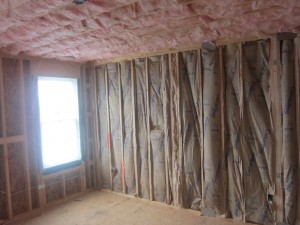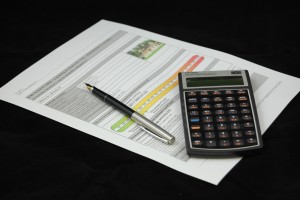With the slowing down of property market in Auckland at the moment, a lot of people are looking to purchase an investment property trying to take full advantage of the relatively low prices and low interest rate . We also believe It is a great time to buy but based on our experience of managing hundreds of properties for hundreds of property investors for the last 10 years, too often we see some properties turn out to be the wrong fit for the investor or sometimes the properties were full of issues that cost a lot of money. Most of these things can be prevented, and here are our advice on 8 things you must check off before buying your next investment property:
-
You must STILL check the property for Methamphetamine
BEFORE you commit to purchase the property, it is in your best interest to check the property for Methamphetamine contamination but more importantly please make sure you have the test report in writing, which can later serve as a baseline test for tenanting purposes. That simply means, you can prove to the tenants and insurance company that at the time of the purchase, meth was not present hence not a pre-existing issue.

If the test comes back positive or worse, you can use that as leverage to negotiate a better price or simply walk away from the deal. Checking for meth before buying a property in our experience is a must and you simply should NOT skip.
-
Ask a lot of questions

Ask both the real estate agent, the seller or even the neighbours if there is anything a buyer should be aware of with this house, particularly around previous occupants, weathertightness concerns if it’s a modern design or had alterations done since the early 1990s. Write down what you are told. It is amazing what information you will uncover by simply asking.
-
Do a building Inspection report
Thoroughly check the house and we recommend that you use a qualified building inspector, and walking through the property for 10 minutes at the open home simply is not enough, even if the property is brand new. You should look at:
- the roof
- plumbing, including water pressure
- electrical wiring
- the piles
- insulation (especially above ceilings where most heat escapes)
- fences, paving and driveways
- evidence of house movement
- Signs of Methamphetamine contamination
- any alterations that do not appear on the plan.

Check the property for potential signs of leaking, including:
- visible water damage
- cracks in the external cladding
- mould on ceilings and internal walls
- bulging or stained walls and skirtings
- balconies on upper floors without good drainage.
-
Insulation

Ceiling and underfloor Insulation are now compulsory in all rental homes from 1 July 2019. If it is insulated, make sure you obtain certificate from vendor or real estate agent and preferably dated within 6 months.
-
Do a budget for ongoing cash flow-can I really afford it long term?

There is nothing worse than after purchasing the investment property, you have to top up the outgoings every single month when you are totally unprepared to do so. Below is a simple formula to help you to work out the cash flow situation after purchasing the property:
| Income | Rental Income | $A=Rent X 52 |
| Outgoings | Mortgage payment | $ |
| Insurances including landlord insurance | $ | |
| Land rates | $ | |
| Property Management Fees | 7.5% of rent | |
| Repair and Maintenance | Minimum 5% of rent | |
| Vacancy | 2 weeks | |
| Meth Test | $300 | |
| Accounting fees | $ | |
| Total outgoings | $B |
Your net cash flow position will be A-B and depending on if it is a positive or a negative figure, you need to prepare accordingly.
-
Do a budget for initial capital outlay to ensure the property can be rented at the highest possible rent to great tenants. There are 2 aspects here to consider:
(1) If you have a limited budget and renovation is not within your consideration, then as a minimum the property must meet certain standards for it even to be ready for a new tenant. E.g. all chattels are in working order, especially appliances, alarm system, spa, heat pumps and etc; and the property must be in clean and tidy condition both inside and outside. Allow budget for complying with Healthy Homes Act by July 2021 on heating, drainage and etc. We will cover that in detail at a later date.
(2) If you are considering to do minor renovation in order to increase the rental return this is a great opportunity to do that. Things to consider that can instantly increase your rent:

- Kitchen – replacing, covering or painting high usage areas such as cupboard doors, door knobs, tap fittings and benchtops can be a quick and inexpensive way to freshen the overall appearance
- Bathroom – add bathroom fans or heating lights to minimise build-up of mould, replace any chipped tiles and missing grouting. Repaint painted areas, if necessary, using a mould resistant paint
- Replace or clean blinds and curtains
- Paint interior walls where required
- Add a dishwasher

- Ensure the garden is as low maintenance as possible
- Add a carport, a parking space or shade-sail cover area
- New front door – a new front door can be an inexpensive way to create a good first impression. Keep your eyes peeled for a second hand bargain
- Replace door knobs
- New mailbox or separate letter boxes for each separate dwelling, if in a block
- Add security or sensor lights
- Add security screens on doors and windows
- Provide a clothesline, either hard standing or retractable
- Add storage.
- Make it family friendly
- Make it pet friendly
-
Do an updated rental appraisal
Quite often the real estate agent would have offered you a rental appraisal which was dated months ago. Rental market in Auckland changes quickly, it is important to get an independent evaluation of how much rent you can receive by getting an updated rental appraisal from your trusted property manager.
-
Talk to professional advisers : mortgage broker, lawyer, accountant, property manager, and etc.
We understand it is costly to get advice from professionals but often not getting the proper advice would be much much more costly. Buying properties under the right entity for tax reasons; structuring the loans accordingly to your situation; ensuring that you seek legal advice about any issues that arise in the LIM or property report; talking to property managers about the true rent level and vacancies; all of these can save you potentially tens of thousands of dollars.
These are the 8 things to protect you and your hard earned money. Good luck hunting for your next investment property. Have fun, and remember, talk to a trusted property manager.





